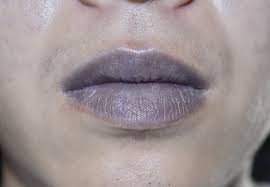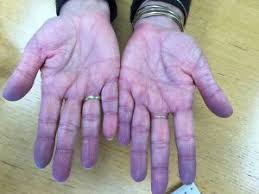Shock is defined as a lack of oxygenated blood circulating through the body; there are three common causes of shock:
Hypovolaemic Shock- Blood or fluid loss
Cardiac Shock- The heart faills to pump properly
Anaphylactic Shock- Severe reaction causing blood vessels dilate
Hypovolemic Shock

20% of blood lost will cause Hypovolemic Shock
Hypovolemic shock or (Physiological shock) is a life threatening condition. Shock occurs when the body’s vital organs such as the heart and brain are deprived of oxygen due to a condition affecting the circulatory system. As first aiders it is important:
- Recognise shock
- Treat shock
Shock Recognition
Now we know that there are many conditions that can cause shock. As mentioned recognition is the most important. In many cases when shock is recognised we can treat it.
We will look at early stages and later stages. Shock itself can develop slowly or very fast.
Early Stages
- Light headed and dizzy
- Feel sickly
- Hands shaking
- Possible hot flush
- Sweating
Later Stages
- Stops breathing
- Lips turn pale blue
- Skin is pale
- Skin is cold to touch
- Vomiting may occur
- Thirsty as mouth becomes dry
- Rapid weak pulse
- Rapid shallow breathing
- Unconsciousness


Treatment of Hypovolaemic Shock
- Treat the cause of shock (e.g Blood Loss)
- Lay the casualty down and raise their legs, this will assist in returning blood to vital organs.
- Call 999 for emergency help.
- Keep casualty warm.
- No eating, drinking or smoking.
- Loosen tight clothing to aid circulation.
- Monitor, breathing, response levels and pulse.
- Ensure AED is requested if available and be prepared for CPR

Cardiac Shock
Cardiac shock is the most common type of shock, and this is when the blood pressure of the heart falls, which is caused by the heart not pumping effectively. Some of the causes of Cardiac shock are:
- Heart attack
- Cardiac Failure
- Heart disease
- Tension Pneumothorax
- Cardiac arrest
Anaphlatic Shock
Anaphylaxis is caused by a problem with the immune system, which is the body’s natural defence against illness and infection. In anaphylaxis, the immune system overreacts to a harmless substance and releases chemicals, such as histamine, to deal with the mistaken threat. However, large quantities of histamine released in the body can be extremely dangerous, causing:
- Blood vessels dilate, and this causes blood pressure to drop.
- Blood Capillaries leak and swell, causing a fall in blood volume.
- The heart weakens, causing a fall in blood pressure.

In the next pages, we will detail the common causes of shock.